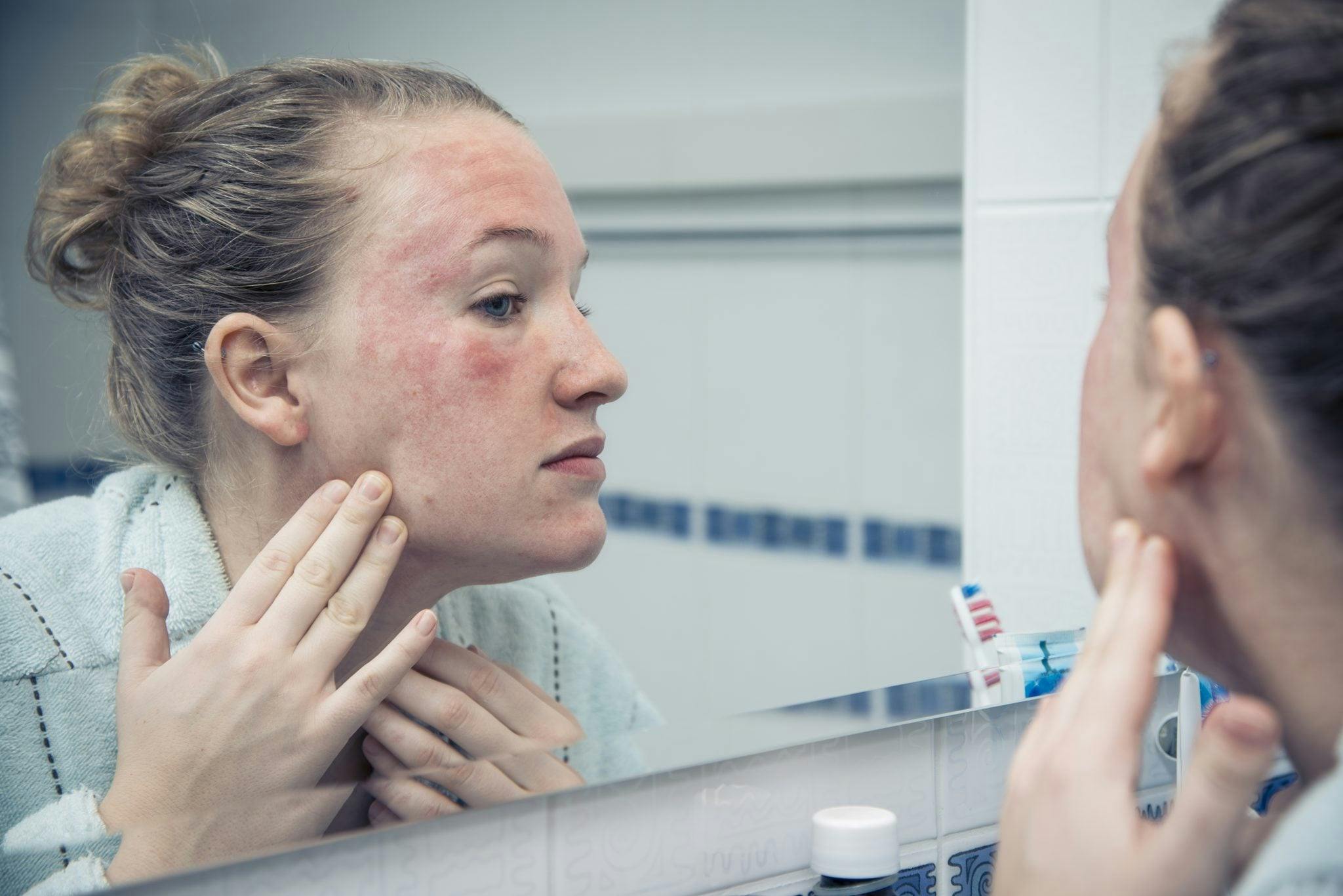Eczema, a group of conditions that causes irritation or inflammation of the skin, affects between 10 and 20 percent of infants, and around 3 percent of children and adults in the United States.
The most common form of eczema is called atopic dermatitis, or atopic eczema, and it is connected to the development of other allergic conditions like hay fever and asthma. With the right treatment, many people are able to successfully manage the symptoms of eczema.
Symptoms
Symptoms of atopic eczema can include:
- Severe itching, often at night
- Red or brownish-gray patches on the skin
- Skin that’s cracked, dry, scaly or thickened
- Small bumps raised above the skin, which may leak fluid and crust over
- Skin that’s raw, sensitive or swollen
Several factors can make eczema symptoms even worse. People with atopic eczema, typically have bacteria on their skin called Staphylococcus aureus. If the skin has been broken, the staph bacteria multiply and cause an intensification of symptoms, especially in children. Other factors that can worsen symptoms of eczema include:
- Dry skin
- Scratching
- Changes in heat or humidity, or sweating
- Certain bacteria or viruses
- Stress
- Dust, pollen, smoke and pollution
- Certain soaps, cleaners and solvents
- Wool found in clothing and carpets
- Certain foods: eggs, milk, fish, wheat, peanuts and soybeans may affect children
If these symptoms become so uncomfortable that it causes sleep loss or distraction from daily tasks, see your doctor. You should also seek medical attention if you’re in severe pain, if you have an infection, or if you’re worried your vision is being affected.
Causes
The exact cause of eczema remains unknown, though it’s likely related to the body’s natural response to certain irritants or allergens. Certain factors that appear to play a role include:
- Environmental conditions
- Dry skin
- Problems with the immune system
- Bacteria that blocks sweat glands
- Genetic variations that damage the skin’s natural barrier function
- Family history of other allergies or asthma
- Contact with rough materials
- Upper respiratory infections
- Proximity to health or child care facilities, or urban areas
- Having ADHD, being African-American and having parents with a high education level have been identified as risk factors for children
Diagnosis and Treatment
Diagnosing eczema requires a visual examination and questions about your symptoms. Your doctor may perform other allergy tests, since many people with eczema also have a higher risk of allergies.
Because atopic eczema can be persistent, treatment for eczema is aimed to relieve pain and itching, and prevent infection. Your doctor might recommend the following medications:
- Creams: You may be prescribed a cream either to ease itching and inflammation or to help repair skin after it’s been damaged.
- Antibiotics: Used for cases of infection, antibiotics can be taken over longer periods of time to help reduce bacteria and prevent future infections.
- Anti-inflammatory drugs: Either ingested orally or through injection, drugs called corticosteroids are generally used for severe cases. Corticosteroids are also present in some itch-relieving creams, though typically in lower doses.
- Anti-itch drugs: Oral antihistamines like Benadryl can help with severe itching, especially around bedtime.
Many patients with eczema also find success with other therapies such as:
- Light therapy: This involves exposing your skin to controlled amounts of natural or artificial light. Light therapy should not be used long-term as it can cause premature skin aging and increase your risk of developing skin cancer.
- Stress treatments: Especially for children who are frustrated by eczema, counseling can be beneficial.
- Wet dressings: Used in severe cases, wet dressings involves wrapping topical corticosteroids and wet bandages around the affected area. This is often done at a hospital with nurse expertise, but you may ask your doctor about how you can do it at home.
- Relaxation therapy: This and behavior modification can help decrease scratching.
If your infant has eczema, treatment focuses on avoiding irritations and extreme temperatures, and frequently lubricating the baby’s skin. If rashes persist, speak to your doctor right away.
Prevention
Here are a few tips to help prevent flare-ups and reduce symptoms:
- Know your triggers: Every case of eczema is triggered by something different, and identifying your triggers can help you reduce exposure to them.
- Be careful with your skin: When drying your skin, use a soft towel and apply moisturizer. Some people even brush the skin quickly with the palms of their hands before applying a towel. Also be sure to avoid scratchy or course materials that can irritate the skin
- Keep bathtime short: Aim for baths or showers between 10 and 15 minutes long, or shorter if possible. Use warm, not scalding hot, water and use only gentle soaps.
- Moisturize: These lotions help seal in moisture, especially when applied on damp skin.
- Manage your stress: Because stress and anxiety can worsen symptoms of eczema, being aware of and taking care of your emotional health can be beneficial.
Although there are many steps you can take to treat and prevent eczema, not every option may be the right fit for your case. There are several different approaches to eczema management out there and not all evidence of these approaches is conclusive, so it’s important to make an informed decision with your dermatologist. If you are considering a new method of treatment to relieve symptoms of eczema, consult your doctor for a plan that’s best for you.
Our experienced physicians share an academic expertise with a collaborative approach that puts our patients’ needs first. Our focus includes surgical dermatology, skin cancer, pediatric dermatology and general dermatological issues and conditions. We provide cutting-edge diagnostics and treatments to help you maintain good health and great skin.
Sources:
“Skin Conditions and Eczema.” WebMD. http://www.webmd.com/skin-problems-and-treatments/guide/atopic-dermatitis-eczema#1
“Atopic dermatitis (eczema).” The Mayo Clinic. http://www.mayoclinic.org/diseases-conditions/eczema/basics/definition/con-20032073


